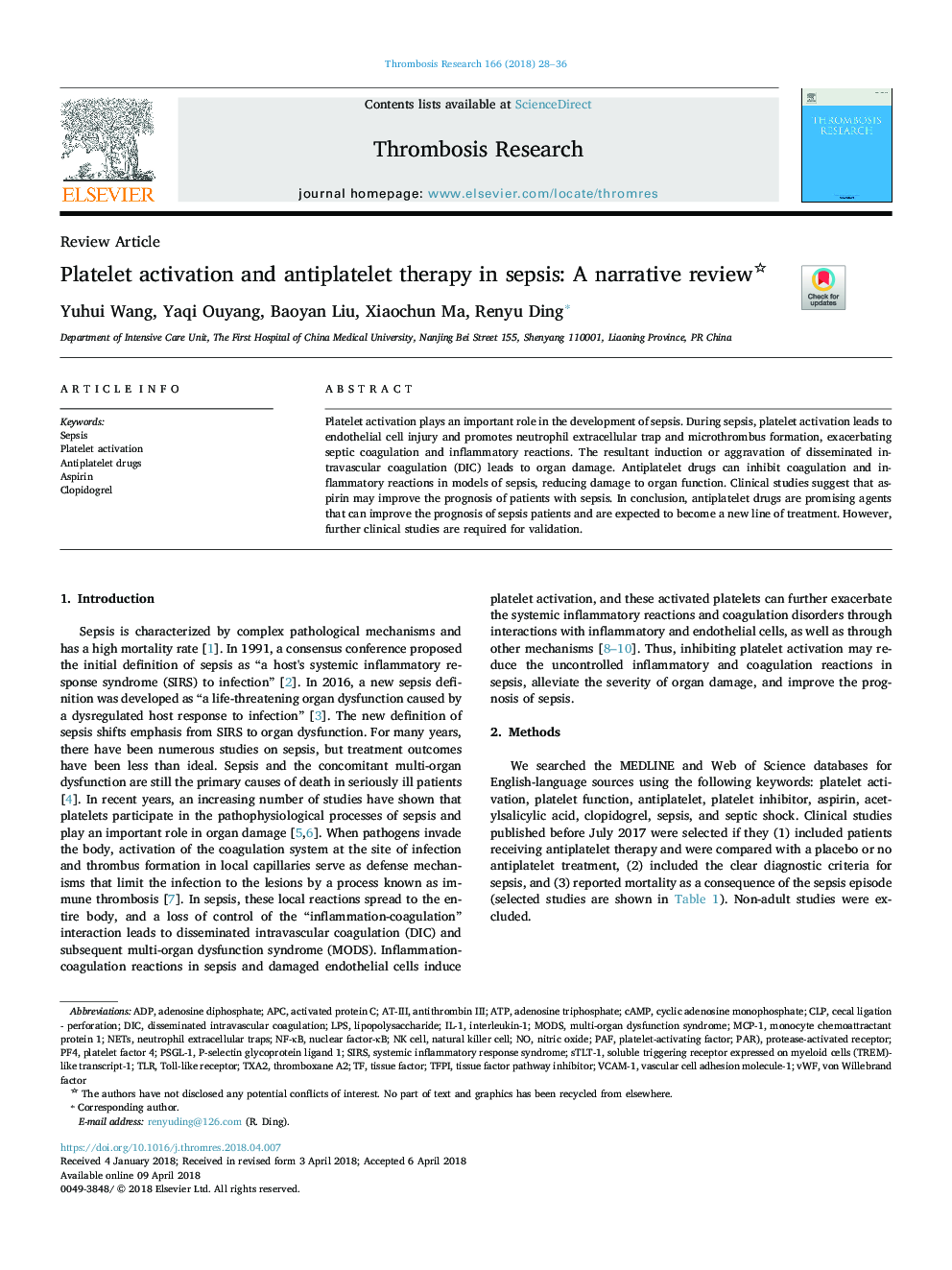| Article ID | Journal | Published Year | Pages | File Type |
|---|---|---|---|---|
| 8679372 | Thrombosis Research | 2018 | 9 Pages |
Abstract
Platelet activation plays an important role in the development of sepsis. During sepsis, platelet activation leads to endothelial cell injury and promotes neutrophil extracellular trap and microthrombus formation, exacerbating septic coagulation and inflammatory reactions. The resultant induction or aggravation of disseminated intravascular coagulation (DIC) leads to organ damage. Antiplatelet drugs can inhibit coagulation and inflammatory reactions in models of sepsis, reducing damage to organ function. Clinical studies suggest that aspirin may improve the prognosis of patients with sepsis. In conclusion, antiplatelet drugs are promising agents that can improve the prognosis of sepsis patients and are expected to become a new line of treatment. However, further clinical studies are required for validation.
Keywords
SIRSTLRPSGL-1ADPAPCMODSMCP-1CLPTFPIvWFP-selectin glycoprotein ligand 1DICVCAM-1IL-1AT-IIILPSTxA2NF-κBPF4cAMPNETsAdenosine TriphosphateATPadenosine diphosphateCyclic adenosine monophosphateAspirinantithrombin IIIdisseminated intravascular coagulationinterleukin-1Thromboxane A2neutrophil extracellular trapsToll-like receptorAntiplatelet DrugsNK cellNatural killer cellmulti-organ dysfunction syndromeSystemic inflammatory response syndromeSepsisTissue factorPlatelet factor 4Von Willebrand factorPlatelet-activating factornuclear factor-κBPlatelet activationlipopolysaccharideTissue factor pathway inhibitorvascular cell adhesion molecule-1Nitric oxidePAFmonocyte chemoattractant protein 1Activated protein Cclopidogrelprotease-activated receptor
Related Topics
Health Sciences
Medicine and Dentistry
Cardiology and Cardiovascular Medicine
Authors
Yuhui Wang, Yaqi Ouyang, Baoyan Liu, Xiaochun Ma, Renyu Ding,
